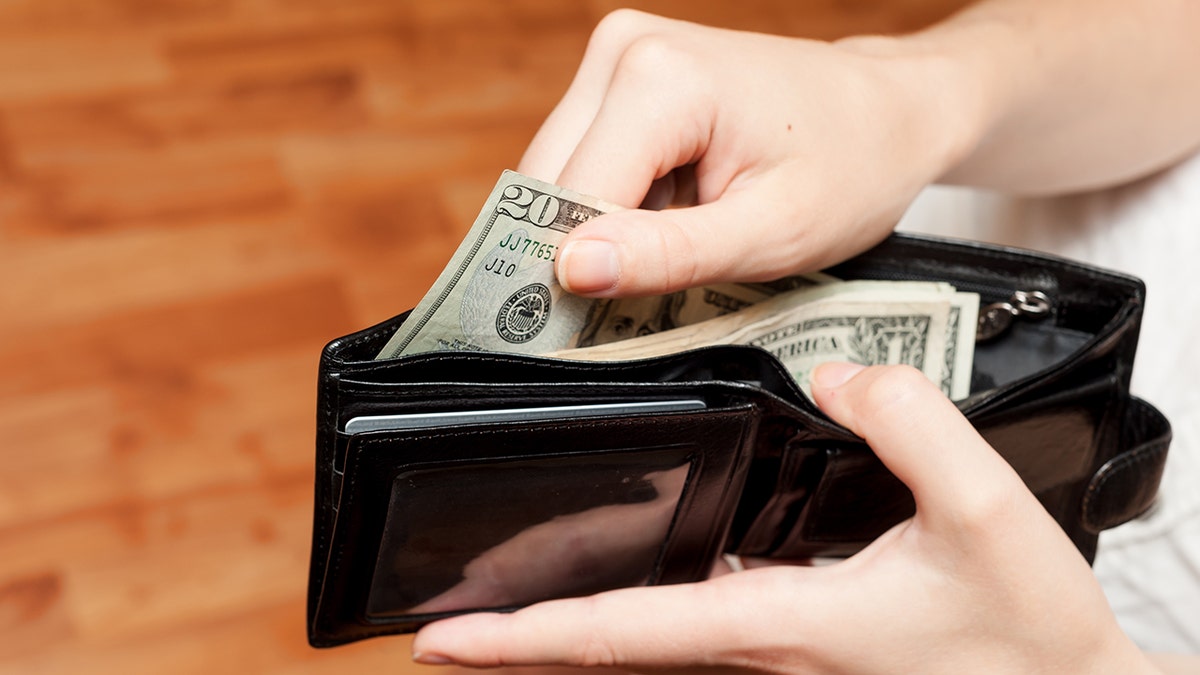Should parents support their children into their 30s?
TV personality Kym Douglas discusses a California assembly bill on home loans and a study that found 47% of parents support their adult children on 'Fox News @ Night.'
Amidst the escalating financial strain on Americans due to soaring prices and pervasive Bidenflation, consumer debt is scaling unprecedented heights. Recent statistics reveal a staggering surge in credit card debt, surpassing the formidable threshold of $1.1 trillion.
Concurrently, auto loan delinquencies have surged to a 13-year pinnacle, while the perpetual specter of student loan debt looms large, hovering around $1.7 trillion despite the government’s best efforts to wipe away some of the debt.
These figures scarcely scratch the concealed burdens of buy-now-pay-later arrangements, payday loans and indebtedness owed through the informal platform of the bank of friends and family. As debt continues to pile up on Americans, the likelihood of family and friends seeking short or long-term financial assistance is going to continue to escalate.
Yet, here lies the cautionary tale: indulging such requests may bear dire consequences for your own family finances and, more importantly, the very essence of keeping your friendships. Here are five reasons to never loan money to friends and family.

Loaning money to the people near and dear to you isn't opening your wallet, it's opening a can of worms. (iStock)
1. Every holiday will be uncomfortable
Informal loans frequently end in disaster with stories of broken friendships and estranged relatives. If you think holiday time is awkward now, how will it feel every time you sit at the Thanksgiving card table wondering when cousin Larry is going to pay you back the $5,000 he borrowed from you only for you to find out he used the money for a Vegas vacation.
Better yet, your sister borrows $2,500 only to turn around and buy Taylor Swift concert tickets. It’s at this time you might be thinking, "It’s me. I’m the problem." Why did I loan my sister the money?
2. You might cause yourself an IRS problem
A loan is a loan. So says the IRS. The IRS mandates that any loan between family members (and obviously friends) be made with a signed written agreement, a fixed repayment schedule, and a minimum interest rate. (The IRS publishes Applicable Federal Rates or AFRs monthly.)
It’s incumbent on you to report this interest and if you don’t collect interest altogether, this could cause you problems, resulting in IRS penalties and interest.
3. You might actually need the money
With 61% of Americans living paycheck to paycheck and inflation still outpacing real after-tax wages, you might be loaning money out that you need to pay off a credit card, tackle your student debt or make that auto loan payment.
CLICK HERE FOR MORE FOX NEWS OPINION
With so many people behind on retirement savings, it’s always a bad idea to loan money to a friend or a family in place of you saving money into your own retirement plan. Draining your own savings to help someone else may put you in the same exact position six months or a year from now.
4, They never ask you just once
You are probably thinking that this loan will be a one-time situational ask, but hardly ever do people value what they don’t earn. What you’ll quickly discover is that the $5,000 you loaned out was just the starting ante, and your relatives and buddies will keep coming back asking you for more money, especially if they know you are doing well. Yes, times are tight for a lot of families in America, but you aren’t a bank or a credit union.
Better yet, your sister borrows $2,500 only to turn around and buy Taylor Swift concert tickets. It’s at this time you might be thinking, "It’s me. I’m the problem." Why did I loan my sister the money?
5. It’s higher risk than crypto
So many people still say that they don’t think Bitcoin is real money, and it never will be. They don’t invest because they are afraid of losing all their money. Guess what? You’ve got a better chance of losing your money loaning it to your friend who bounces from job to job to job than you do losing it all in crypto.
CLICK HERE TO GET THE FOX NEWS APP
Once that money vaporizes from your checking account, and you loan it out, you might as well write it off. A recent Finder article states that Americans owe an estimated $184 billion a year to friends and family.
Unless your goal is to break up with your friends and family, don't lend them money.











































